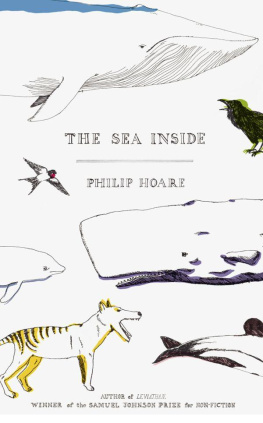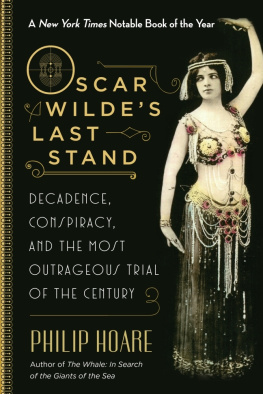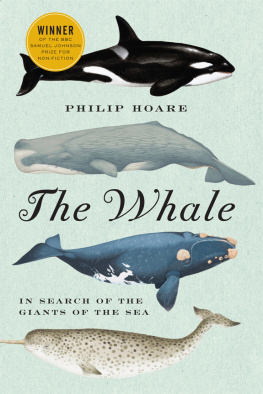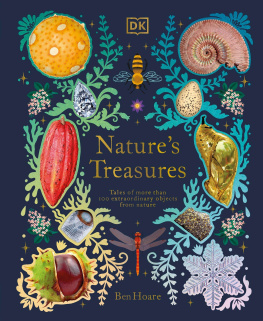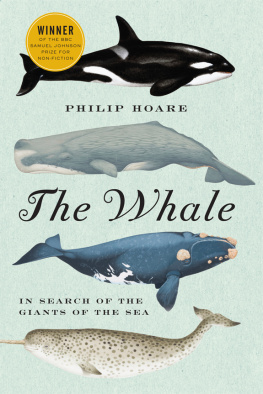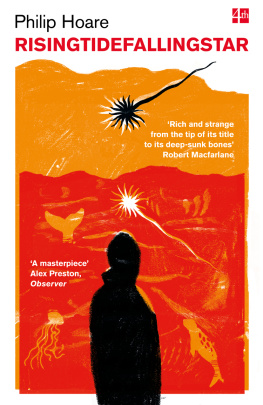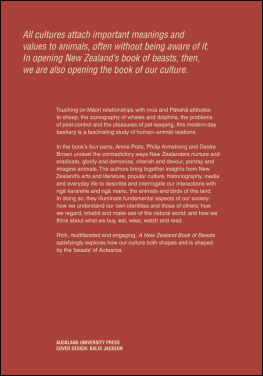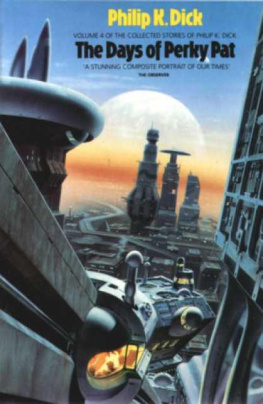The Sea Inside
PHILIP HOARE
FOURTH ESTATE London
For Cyrus, Max & Lilian
Even now my heart
Journeys beyond its confines, and my thoughts
Over the sea, across the whales domain,
Travel afar the regions of the earth
The Seafarer, Anglo-Saxon verse
Contents
I have lived long enough in the Shire to be
able to afford to go away from it with pleasure.
I suppose this is what homes are for. If one
hadnt got an anchorage it wouldnt be
exciting to sail away.
T.H. W HITE, England Have My Bones, 1936
I n the years since I have come back to it, the house has grown to become part of me. It is held together by memories, even as it is falling apart. Surrounded by ivy and screened by trees, it has become an enclosed world, left to itself. As I look out from my bedroom window, a blackbird paces out the garage roof, over which a broken willow hangs. Below, tadpoles swim blindly in a slowly leaking pool.
Every day here is the same. I work at the same time, eat my meals at the same time, go out at the same time, go to bed at the same time. I hold fast to my routine, anchoring a life that might otherwise come adrift. But at night the anarchy of my dreams disturbs this self-imposed regime, freefalling till I regain the rituals of the morning.
Im woken by the cold outside my window, the dark pressing against the glass. I listen to the litany of the forecast, taking me around the coast
Dogger, Fisher, German Bight, Humber, Thames, Dover, Wight, Portland, Plymouth, Biscay, Trafalgar, FitzRoy, Sole, Lundy, Fastnet, Irish Sea, Shannon, Rockall, Malin, Hebrides, Bailey, Fair Isle, Faeroes
places Ill never visit but whose names reassure me with their familiar rhythms, while their remote conditions seem strangely consoling.
Low, losing its identity, mainly fair, moderate or good, falling more slowly, mainly fair in west, occasionally poor in east, good.
I pay attention to the wind direction; not for my boat, but for my bike. A northerly means a chilly but fast ride south, an uphill struggle on my return. A prevailing souwesterly signals a speedy cycle home, the wind behind my back like a sail. I peer through the curtains for a faint sign that the long night is drawing to a close.
Variable three or less, fog patches at first, becoming mainly good.
Outside, I smell the night-morning air; promising and inviting, or closed-down and denying. I unlock the old brass padlock on the garage door and pull out my bike, feeling for its cable lock like reins.
I follow the same route. Ive been doing it so long that my bike could steer itself to its destination. Its tyres know every crack in the tarmac, every worn-out white line, every pothole. The urgency of my mission leaves the sleeping houses behind. I ride like my mother walked, at a furious pace, always trying to keep up with myself. As though, if I went fast enough, no one would see me.
Its December. The colour has yet to seep back into the sky, before the warmth of the night meets the cold of the dawn. My body is geared to the bike. Green lights signal to non-existent cars; I sail through on red. Sodium lamps soak the streets in a Lucozade haze. I ride down the white lines, arms outstretched, reclaiming the road.
Soon I pass out of the suburbs sprawl, from the land to the sea. Crunching through the shingle, along furrows made on earlier visits, I rumble to a halt at the appointed spot. Leaning my bike against the sea wall, I climb over and no going back now lower myself in.
The water is so clear it scares me. Fish leap up as though theyd dropped out of the clouds. Everything is rising to the surface, summoned by the light, slowed to the seas heartbeat. The water brims like an overrun bath. I push out through the stillness of the standing tide, my hands creating the only ripples.
I drift out as far as I dare. Borne up by the water, I turn briefly on my back, hips held to the sky, before striking back for the shore. I haul myself out, my body pink and steaming like a wet dog. The scar on my knee is a livid purple; my white T-shirt glows blue in the faint light.
Birds become visible and audible before the sun rises and the world wakes, a netherworld neither dark nor light, out of time. The anonymous Anglo-Saxon poet of The Wanderer had a word for it, hta, the hour before dawn, as he travelled by winter, watching the sea birds bathing, stretching out their wings.
Its over all too quickly. A frail sun appears over the trees, milky-lemon pale, more like the moon. The morning begins. My body suffers but my spirit soars at having stolen a march on the day; having been rewarded as well as punished. Ive forgotten my gloves. I stuff one hand, then the other, in my pockets. A skein of geese fly low over the mud. Curlew call out their names curl-you, curl-you whistling through their arched bills. Gulls clamour.
Cloud layers over cloud, plum, purple and navy, cocoa, khaki and grey. The cold surrounds me, almost comforting. The light lifts and falls. I smell the iodine of the shore and an intimation of drizzle in the air as the birds noise rises in a crescendo, an orchestrated start to the day. The docks rumble into action. A brightly-lit liner sails up the estuary, silent yet so full of people, a distant glimpse of glamour.
The night fades away. I race the ship back to port, flushing a lone and indignant duck from the freshwater pond that has gathered at the mouth of a shingle stream. Somewhere in the woods a woodpecker hammers. The dawn is replaced by ordinary day; the emptiness soon filled by the commonplace. I can see my hands once more. Everything seems to pause in these final moments, as though the performance were put on hold, even as it begins again.
The beach isnt much of a beach. Its really all thats left behind by the slow-moving estuary, more a kind of watery cul-de-sac, fed by two converging rivers. One is filtered through chalk downland to the north-east, flowing through watercress and filled with swerving trout, slowly widening and losing its virginity until it reaches a carved-out bay in the semi-industrial arse-end of the city. Its outer curve, bulwarked by great heaps of rusting cars, is strewn with every imaginable item of litter, deposited by the tidal flow. Its fellow river emerges from the far side of the city, broadening through reed-seeded marshes into the shadow of the docks a forbidden land where giant cranes stalk like wading birds, and where shiny new cars begin a journey which will end in the same kind of dump in the same kind of city. Yet somehow, somewhere, all this is forgotten in the conjunction of tide and shingle: something quietly miraculous, perpetually renewed.
The sea defines us, connects us, separates us. Most of us experience only its edges, our available wilderness on a crowded island its why we call our coastal towns resorts, despite their air of decay. And although it seems constant, it is never the same. One day the shore will be swept clean, the next covered by weed; the shingle itself rises and falls. Perpetually renewing and destroying, the sea proposes a beginning and an ending, an alternative to our landlocked state, an existence to which we are tethered when we might rather be set free.
I say it isnt much of a beach, but that doesnt do it justice, since it has a beauty all its own more so for being seldom visited out of season except by dog-walkers and anglers. It is set at the end of a shallow bay that marks the south-eastern limits of the city. To reach it, I ride along a waterfront set with desultory concrete shelters and backed by common land to which are chained half a dozen horses. Behind stands a post-war housing estate, one-quarter of whose population live in poverty.

